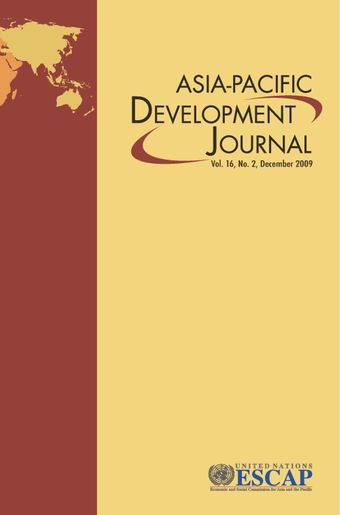-
Analysis of Saemaul Undong: a Korean rural development programme in the 1970s
- Source: Asia-Pacific Development Journal, Volume 16, Issue 2, Jun 2012, p. 113 - 140
-
- 13 Jun 2012
Abstract
Saemaul Undong was a community-based integrated rural development programme of the Republic of Korea in the 1970s which contributed to narrowing the developmental gap between urban cities and rural communities over a decade. Its success can be attributed to its implementation of basic strategies of poverty reduction adapting to and making use of the Korean contexts—promoting opportunities and facilitating empowerment for rural people. Forty years ago, the people who designed and implemented Saemaul Undong did not have a clear understanding of the concepts and vocabularies that are broadly used in development today. What they promoted, achieved and implemented, however, was not different from the goals, objectives and methodologies that development practitioners promote today. The most important lesson learned from Saemaul Undong are that it devised appropriate strategies and measures reflecting and making use of the specific political, economic and social contexts. Developing countries should carefully study their own situation and devise workable and practical solutions of their own.
© United Nations





